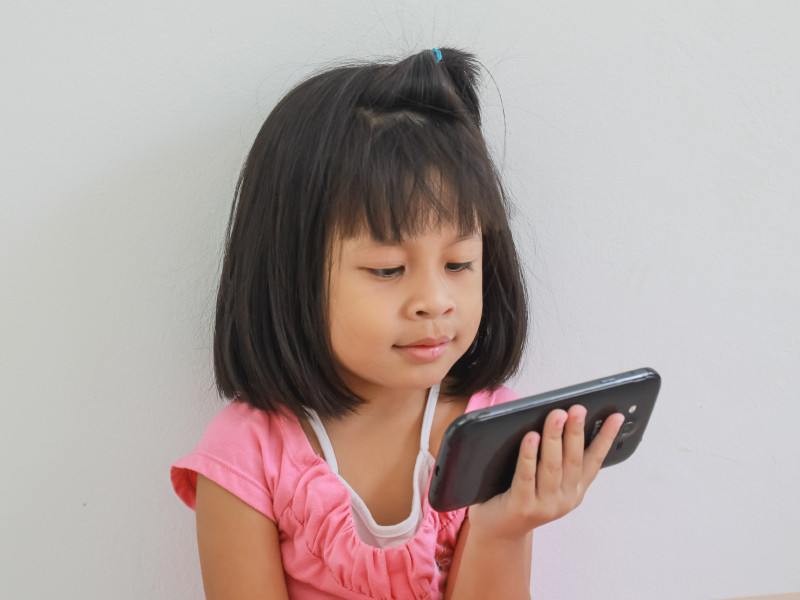Beyond the 2-hour screen rule: 10 tips for parenting in the digital age

(Follow me at @drClaire)
For years, the recommendation of the American Academy of Pediatrics (AAP) when it came to media and kids was pretty straightforward: limit the TV to 2 hours a day, and don’t let children under the age of 2 watch it. As the Internet emerged and new devices arrived, the recommendation was tweaked to 2 hours of “entertainment media,�� with the recommendation that the under-2 crowd stay screen-free.
But these days, even that has gotten hard. Is doing a math game on an iPad entertainment? How do you do the 2-hour rule if your teen intermittently checks social media while doing online homework? What about texting �� that’s media and screen-based, but a lot of it is conversations between friends, instead of tying up the home phone for hours, like teens used to do. And if you let your toddler watch a video on your phone to keep them quiet on a crowded bus (so that you don’t get the evil eye from everyone around you), is that terrible?
Our children are growing up in a digital age, and parenting needs to reflect that. The AAP understands this, and is working hard to understand the ongoing research about the effects of media on children, so as to give the best recommendations to parents. In the meantime, they have released
- Treat media as you would any other environment in your child’s life. You want to know what your children do at school and with friends �� you should want to know what they do online, too. And just like you have rules about behavior at school and with friends, you should have rules about online life as well.
- Set limits and encourage playtime. The AAP recommends setting “reasonable limits�� on media use, which will vary with the child and the situation. It’s also important that children get plenty of time away from media, using their brains and bodies in different ways and interacting with the three-dimensional world around them.
- Families who play together learn together. This is particularly important for younger children �� if you are going to let them use media, do it with them so that they get the back-and-forth that is so crucial for early brain development. And instead of using media as a babysitter, use it as a way to have fun together.
- Be a good role model. If you are on your phone or laptop all the time, or turn on the TV as soon as you sit down on the couch, what kind of message are you sending?
- Know the value of face-to-face communication. Not only is it crucial for the developing brains of babies, it’s crucial for relationships and mental health. Media can sometimes help with this, like with video chats with far-flung relatives, but for the most part, the take-home is: everyone needs to put down the devices and talk to each other on a regular basis.
- Create tech-free zones. Sometimes technology can truly get in the way �� of relationships (so the dinner table is a good place to make a tech-free zone) or sleep (this is becoming a big problem with teens �� phones should be charged outside the bedroom). It’s also a safety issue: texting and driving (or walking down the street) can be fatal.
- Don’t use tech as an emotional pacifier. Yes, it can come in handy with the toddler on that crowded bus. But kids also need to learn to handle emotions �� and boredom �� without the help of a device. It’s an important life skill.
- Do your homework when it comes to apps for kids. They are absolutely not all created equal. A great resource is , which has reviews on apps as well as all sorts of other media like movies and TV shows.
- It’s okay for your teen to be online. It really is where teens connect these days, and it’s not a good idea to keep them off. They do, however, need to learn to be good and responsible digital citizens: online time shouldn’t crowd out offline activities and relationships; they need to be kind; and they need to remember that nothing they do online is truly private �� and everything they do is potentially permanent.
- Kids will make mistakes. Because that’s what kids do. They fall off bikes, they kick the ball into the other team’s goal, they break rules, they hurt feelings. They can make mistakes online, too. The AAP recommends trying to approach mistakes with empathy, and turning them into teachable moments. But if the “mistakes�� continue, especially if you have concerns about bullying, sexting, or signs of depression, let your doctor know.
The AAP has �� as does the of Boston Children’s Hospital.
About the Author

Claire McCarthy, MD, Senior Faculty Editor, �첩���� Publishing
Disclaimer:
As a service to our readers, �첩���� Publishing provides access to our library of archived content. Please note the date of last review or update on all articles.
No content on this site, regardless of date, should ever be used as a substitute for direct medical advice from your doctor or other qualified clinician.













